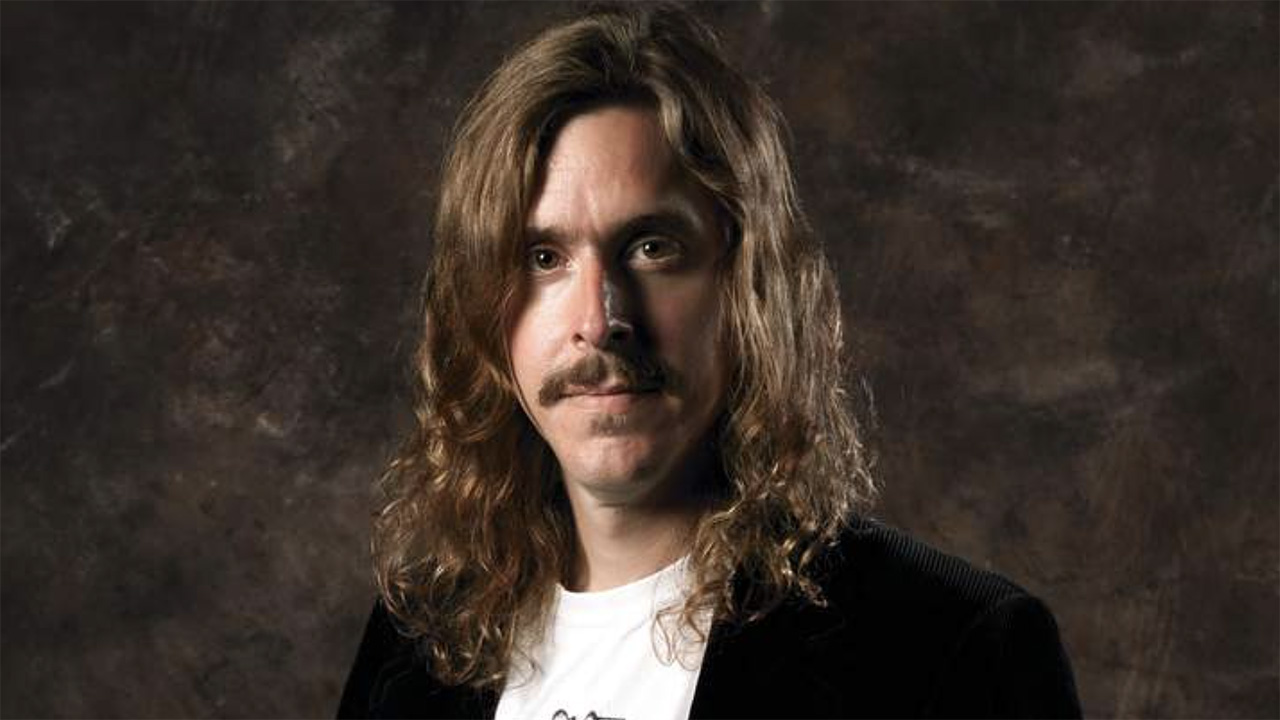Pale Communion Prog can’t recall who said it, but there’s a quote that continues to inspire him: ‘A real musician doesn’t take advice.’ “I’ve always liked that,” the leader tells down the line from his home on the Swedish archipelago. “What that says to me is that if you consider yourself a musician, it has to all come from within.
All music genres are saturated with groups copying the latest big fucking band, so it’s important to remember that the word ‘progressive’ should say it all.” It’s an issue he feels is particularly vital for metal and prog bands. And, considering they’ve often combined the best of both worlds over their quarter-century lifespan, it’s one that’s very pertinent when it comes to Opeth.

“It doesn’t mean that you should copy or and think of yourself as a progressive band,” he continues. “Because for me, it’s not a genre – it’s the true meaning of the word. Progressive music is something that pushes things forward.
That’s why today I really value music that I can listen to without finding obvious references for it. That’s what makes me sit up straight and go, ‘OK, what’s happening here?’ There are probably shitloads of people out there who just want to listen to a contemporary version of Genesis – my personal view is different.” It’s a view that’s served him well thus far.
Since joining the embryonic version of Opeth in 1990, then taking over as frontman and creative axis after the departure of founder member David Isberg two years later, Åkerfeldt has produced a body of work driven by a restless disregard for conventional boundaries. Calling them a progressive death metal band even sounds reductive. With 1995 debut , they announced themselves as purveyors of a new kind of Scando-metal, fluctuating between grunting vocals and deft acoustic interludes.
These were epic songs freighted with both anguish and antipathy; songs as beautiful as they were brutal. Sign up below to get the latest from Prog, plus exclusive special offers, direct to your inbox! Opeth’s trail has now led to their 11th studio album, . If 2011’s predecessor, , signalled a forward leap by way of a more open collusion of prog, folk and heavy rock – marked by knotty riffs, sparkling instrumental runs, itchy time signatures and growl-free vocals – this new one is another major shift.
It’s more cohesive than , for starters. And although it’s certainly no less complex, there’s a discernible emphasis on vocal harmonies and a more pastoral appropriation of the doomier end of folk music. As with , there are ringing echoes of 2003’s (the black sheep in the Opeth fold) in Åkerfeldt’s wholesale reliance on clean vocals.
Above all, it’s perhaps their most organic album to date. “We wanted to sound like a band of humans,” Åkerfeldt states. “I think we got caught up in new technology for a couple of records, where you could basically fix everything in the studio.
But now we’ve left it sounding more natural, as opposed to having something more mechanical, with the robot-y sound that’s popular in metal today. We recorded the album at Rockfield Studios and decided that if you go in there, you should just put all your trust in yourself, rather than the engineer.” Heritage was all over the place – that’s the stuff I like – but Pale Communion has more hooks This, it transpires, is a key detail.
While Åkerfeldt says he has no regrets over the exacting rigour of previous recordings, he does admit that they deliberately steered away from making everything ideal on : “In the past we’d cut various takes together to make a perfect version of each individual song. But with this one we mostly did one or two takes. Once we had the sound, we just went for it in the studio.
And sometimes if I fucked up while I was playing and no one noticed, I just continued like nothing happened.” Åkerfeldt cites one of his favourite albums, ’s 1976 opus , as a major signpost. “That one was also recorded at Rockfield and there are mistakes in it.
There are a couple of things on that record that are ‘untight’ – but that’s one of the reasons why I love it. It has a human quality to it.” The whole album was cut in “10 days or so, like an old-school recording.
” And while there are familiar spores of classic Opeth in the heavier, guitar-ripping tunes like and , the band’s love of pure melody is a more striking element. “I only got some idea of what I wanted to do after I wrote the first song, which was ,” Åkerfeldt explains. “The vocals carried the melody; and I figured that even if we have a lot of disharmonic stuff happening in our music, the melodic sense has always been there.
"I guess I wanted to take that to the next level. was all over the place and schizophrenic – and that’s the stuff I like – but definitely has more hooks. I think these songs are easier to understand than the ones on .
” As with its forerunner, the record was produced by Åkerfeldt himself and mixed by long-time ally . The pair’s creative partnership has blossomed in recent years, culminating in 2012’s more esoteric side project, , and its self-titled album. David Coverdale, Paul Rodgers, Ronnie James Dio – that’s how I want to sound.
I can’t, but I’m trying With both men being rabid collectors of vinyl, it was only natural that each would introduce the other to music they hadn’t heard before. If standouts like and carry a distinct tang of , there’s a reason for that. “ ’s [1971] was introduced to me by Steven a few years ago,” says Åkerfeldt.
“And then I went into the whole Crosby, Stills, Nash & Young territory, which I hadn’t done before. Being a death metal kid growing up, that was old man’s rock. It was out of bounds; I wasn’t interested in that stuff.
But hearing Crosby’s solo record got me into his way of writing vocal harmonies. Actually, the original plan was to make a record with only vocal harmonies – but that didn’t happen.” This fresh appreciation of vocalese may appear somewhat odd for a man who once professed to disliking his own voice so much that he would often try to bury it deep in the mix.
Åkerfeldt is still modest about his talents in this regard, though he does admit: “I’m more confident now. Even though I’ve been the singer in this band for nearly 25 years, I never really saw myself as one. “I guess I have aspirations that go higher than my ability.
My favourite singers are , , – those kind of guys. That’s how I want to sound. Obviously I can’t, but I’m trying.
“So with this record, I thought I shouldn’t be afraid of pushing it and delivering the vocals with the emotion they’re supposed to have. There was a point where I was only singing death metal vocals and it was so much easier for me. But I took that to a level where I felt like I wasn’t really creating anything new.
So now I’m just concentrating on the clean vocals. Maybe that will make listeners feel a little more uncomfortable on , but I think it’s my best vocal performance on record so far.” I was writing about stuff that wasn’t necessarily true – I was just imagining the worst that could happen While all this may sound a little disarming to diehard Opeth fanciers, some things are unchanged.
Lyrically, Åkerfeldt still remains the master of existential doom, pouring his anxieties into the new songs. The intricate, ten-minute , for example, sounds like the soundtrack to one man’s journey through an earthly prison. Its proggy passages, rapturous at times, convey a tale of a wretched soul trying to escape a ‘ .
’ And while finds Opeth in truly stately form, even flirting at the fringes of 70s AM rock, its message is overridingly bleak. sings Åkerfeldt at his most despairing, Such intimations, he reflects, “are nothing new for us.” Even the album title dips its toe into the dark stuff: “I wanted to sum up the lyrics, because the album is some kind of confessional.
I felt like just worked. And it sounds cool. It was also a reference to death, like a pale companion.
” But there’s only so much premeditated angst to go about. Åkerfeldt is refreshingly candid: “When it comes to many of the songs in the Opeth camp, the so-called ‘classics,’ I don’t even know what they’re about!” he laughs. “It’s just bollocks, really.
I could still tell you what most of the songs on or [2008] are about, but with the older ones I often can’t remember. I usually find myself writing in the heat of the moment and only afterwards do I try to make out what it actually means. “But the new songs are more personal in the sense that I’m writing about immediate things that are happening around me.
Many of them are about my private life, which has been troubled, off and on. And I have a tendency, when I start feeling down, to foresee things as becoming catastrophic. My mind takes on a life of its own and the tiniest thing can escalate into a massive problem.
There’s probably some term for this. “With these lyrics I found that I was writing about stuff that wasn’t necessarily true – I was just imagining the worst that could happen. And it bounces between pleading and desperation, like on the song , to ‘ .
’ It’s all a bit schizophrenic.” The main thing is that I feel like I’m still learning Given a decent tailwind, could be a very big album for Opeth. Their current line-up – Åkerfeldt, guitarist Fredrik Åkesson, pianist Joakim Svalberg (who replaced Per Wiberg after in 2011), bass player Martín Méndez and drummer Martin Axenrot – seems to be both stable and highly capable.
And the signs are certainly good: recorded first-week sales of nearly 20,000 in the US, peaking at No.19 on the Billboard chart. In the UK it reached No.
22, while also placing high throughout Europe and in Australia. In short, it was their most successful record to date. Sales were also spiked by a major tour of the States, where they shared top billing with .
Another notable feature is Opeth’s presentation. Their album covers are often laden with symbolic images of the world they perceive. The burning theatre on , for instance, is supposed to represent the decline and failure of civilisation.
Conceived by regular designer Travis Smith, depicts a trio of paintings on what looks like a dungeon wall, lit only by a solitary shaft of sunlight. Each painting contains a Latin quote. The first one comes from Sweden’s 17th-century Lord High Chancellor, Axel Oxenstierna: “Don’t you know, my son, with how little wisdom the world is governed?” The other two are hardly filled with hope either.
“I knew from the get-go that I wanted Latin text on the cover,” Åkerfeldt says. “And the fact that one of the guys was Swedish was cool. The quotes were basically something that would fit together with each individual painting.
The original idea was to have a triptych – they’re supposed to show a journey through life that starts pretty good and ends shit.” He can’t help but allow himself a quiet chuckle at his own words; perhaps at the irony of it all. The eternal pessimist, presiding over a world that, on a wider scale, might finally be ready to open itself up to this band of his.
“The main thing is that I feel like I’m still learning,” he says. “And that’s very important to me: to make myself feel like I’m actually progressing.” Which is where we came in.
Freelance writer for since 2008, and sister title since its inception in 2009. Regular contributor to Uncut magazine for over 20 years. Other clients include and .
Alongside Marc Riley, co-presenter of long-running A-Z Of David Bowie podcast. Also appears twice a week on Riley’s BBC6 radio show, rifling through old copies of the and in the Parallel Universe slot. Designed Aston Villa’s kit during a previous life as a sportswear designer.
Geezer Butler told him he loved the all-black away strip. “It was a tragedy what happened to Jaco Pastorius..
. It’s why I’m glad I only have a modicum of talent”: Chicago ex Jason Scheff hails his prog heroes Weather Report “We weren’t doing electronic music with synthesisers, but with a bank of oscillators we stole from radio stations”: Jean-Michel Jarre and the creation of Oxygène The best new rock songs you need to hear right now.



















